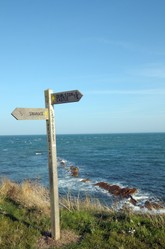David Cameron, the UK's prime minister, will go down in history for a blunder of monstrous proportions that could precipitate a constitutional crisis. When he made a coalition with the reformist party, the Liberal Democrats, he refused a plebiscite on all but the simplest and most inadequate form of electoral reform, whereas the Lib Dems had asked for full proportional representation. Cameron opposed the change and the Lib Dems lost, so we kept the system as it is. First past the post is the system in which the candidate with the largest number of votes in a constituency wins, but that causes problems because in multi-party elections you can win with under fifty per cent of the votes, often significantly under. The trouble is that first past the post works if you only have two significant parties, with three it struggles, but now the party system has proliferated. We have a range of parties contesting the election with an electoral system designed for two.
How did this come about? In the thirteenth century when first past the post was instituted, there were no parties and each constituency elected an independent. But hundreds of years have elapsed,the franchise has expanded to the whole population, parties have risen and fallen, but first past the post clung on because it was in the vested interest of two parties. Thatcher clung on to it with spurious justifications. Not only did she refuse to make any change, uttering the peremptory no that was her trademark, she even had the impertinence to tell the Europeans that they should adopt our defective British way of holding elections.
So what's the problem? We now have the following parties all contesting the general election:
Conservative [Tory] slightly in the lead at present, but tend to represent the rich.
Labour, slightly behind behind, but with a leader lacking credibility, especially in Labour's Scottish heartland.
Liberal Democrats, much behind. They are currently junior partners in the coalition, but have been responsible for major reforms to the tax system. But at eight per cent of the vote disaster is looming.
United Kingdom Independence Party. [UKIP] On fifteen percent. Wants Britain out of Europe, you know blame the immigrants for your problems.
Greens: Five percent. Great policies, but a leader not up to the job.
Then there are the nationalists: Welsh and Scottish. The Welsh are small in number, but the Scots could win a large number of seats in Scotland at Labour's expense. They would make no coalition with the Conservatives, the Lib Dems would make no coalition with them, but there is talk of a coalition with Labour; and this is getting England incensed.













 Darkness over the Earth the skies darkened when Jesus was crucified15 days ago
Darkness over the Earth the skies darkened when Jesus was crucified15 days ago
 TheThousand Year Gardenon 11/26/2025
TheThousand Year Gardenon 11/26/2025
 Women of the Gospelson 10/11/2025
Women of the Gospelson 10/11/2025
 Religious Gardenson 08/25/2025
Religious Gardenson 08/25/2025



Comments
No. It is derived from the Norman dialect.
Thank you!
English Wikipedia describes Jèrriais as Norse adapted to langue d'oil ("language of yes [as oil, not oc]") of northern France.
Would you with your French familiarity understand conversational or written Jerriase?
The Nazis probably used English and French, which are both spoken in Jersey. None is reported as having a command of Jerriase, the Jersey dialect.
Thank you!
That's sobering about the Channel Islands.
How was communication carried out? Were the Nazi occupiers fluent in English or would the Channel Isles-ers have had to learn German?
The Nazis took the Channel Isles in 1940. They were recovered in 1945 when Germany surrendered.
Thank you!
The Channel Isles and the Isle of Man appear so vulnerable on a map.
Were their integrity and their safety ever compromised during any wars that involved the British Isles?
(Would they be difficult or easy to defend?)
Probably, but we have no draft law and would need to pass a new one.
Thank you for your comments March 21, 2023, in answer to my previous, same-day questions.
The last sentence advises us that the Channel Isles and the Isle of Man "make their own laws, but are subject to the British state for international matters."
Do international matters duty them to military service and to wartime drafts?
The best way forward for the UK is a major political revamp where we collectively reform the apportioning of powers. However, you mention the Channel Isles, but not many people know that they are not in the UK, as they, like the Isle of Man, are crown dependencies, which make their own laws, but are subject to the British state for international matters.
Your final subheading, Consequences, considers in its final paragraph "secessionist tendencies" in the Orkney and the Shetland islands.
Would it be possible for the United Kingdom to restructure into something somewhat like Spain, where Euzkadi and Naparroa (the Basque Country and Navarre) relate autonomously?
What about the other islands, such as the Channel isles?